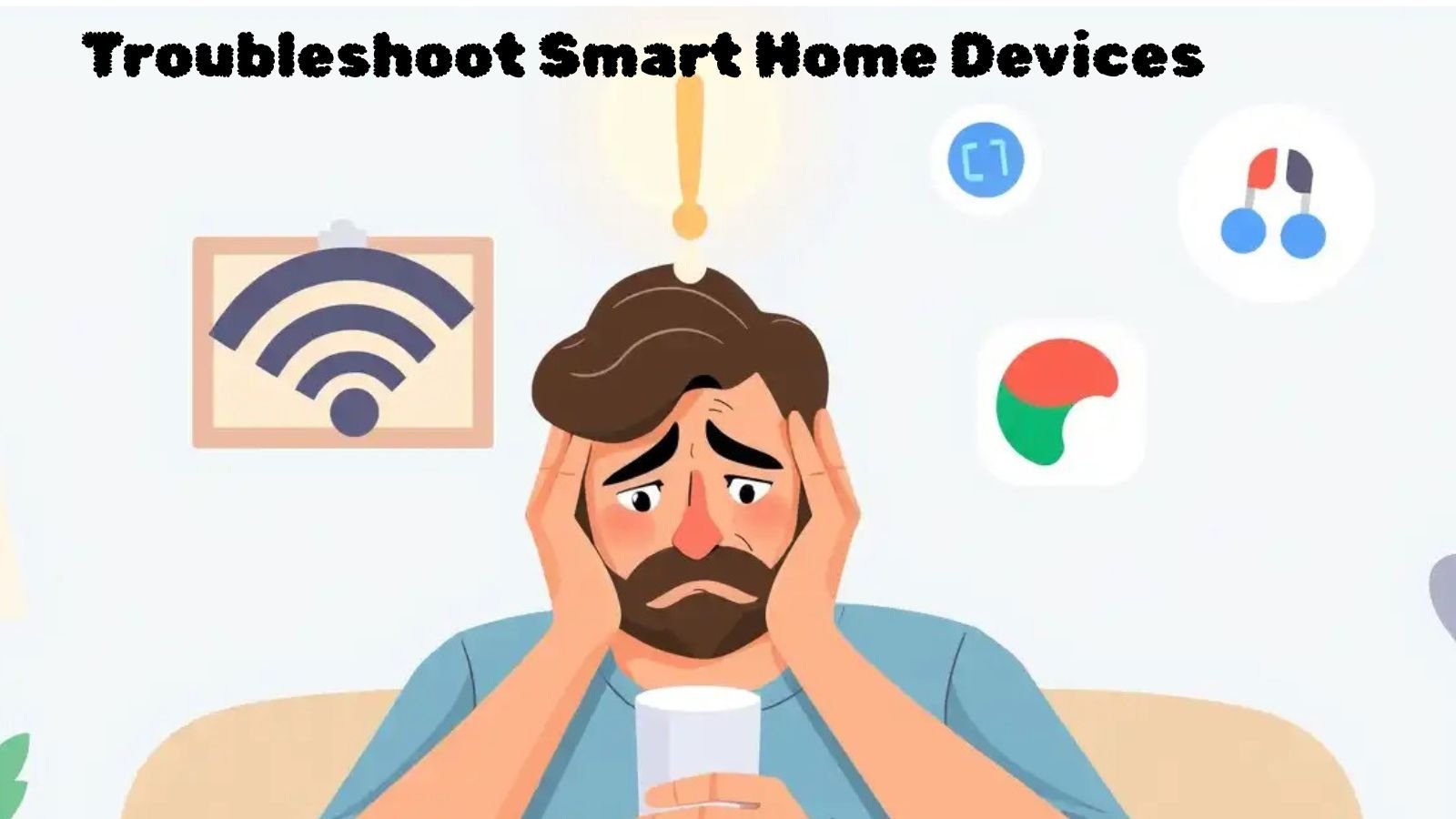How to Troubleshoot Common Smart Home Device Issues
Fix your smart home fast with practical solutions to pairing, connection, and voice assistant problems
Why Smart Devices Fail
Smart home devices make life easier—until they stop working. Whether it’s a light that won’t turn on or a voice command that goes unanswered, these glitches can be frustrating.
In this guide, we’ll help you troubleshoot smart home devices across all major platforms: Alexa, Google Assistant, Apple HomeKit, and others.
Need help building a smart home from scratch? Visit our Smart Home Setup Guide.
1. Device Won’t Connect to Wi-Fi
Most smart devices rely on a solid internet connection. If yours is dropping offline:
- Ensure you’re on a 2.4 GHz band (many devices don’t support GHz).
- Restart your router and modem
- Place the device closer to the router during setup
- Check if MAC address filtering is enabled
Still having trouble? Reset your router and assign a static IP for better device recognition.
2. Device Not Showing in the App
Common with apps like Smart Life, HomeKit, Alexa, or Google Home:
- Ensure Bluetooth or Location is enabled on your phone
- Restart both your smartphone and your smart device
- Clear app cache or reinstall the app
- Update the firmware and the mobile app
Check if the device supports your region. Some hardware is region-locked.
3. Device Keeps Disconnecting
Frequent drops usually mean one of the following:
- Weak Wi-Fi signal (try a mesh system)
- Overloaded router (too many connected devices)
- Interference from microwaves, cordless phones, etc.
- Outdated router firmware
Consider using a dedicated guest or IoT network for stability.
4. Voice Assistant Not Responding
If Alexa, Siri, or Google Assistant aren’t responding:
- Verify microphone access isn’t disabled
- Ensure the device is online in the app
- Try saying “Hey [Assistant]” followed by the device name exactly
- Re-link your account if all else fails
For example, “Alexa, turn on bedroom lamp” must match the exact name in the Alexa app.
5. Automations Not Working
Automations may fail due to logic or sync issues:
- Make sure the trigger condition is met (e.g., motion detected)
- Ensure time-based rules are not restricted by Do Not Disturb
- Check that devices are online and reachable
- Delete and recreate the automation
Explore our Routine Creation Guide for smart home automations.
6. Device Won’t Pair
If your smart bulb or plug isn’t pairing:
- Reset the device (usually via power cycling 3–5 times)
- Make sure your phone is on the same Wi-Fi network
- Use the brand’s official app first before connecting with Alexa/Google
Hold your phone close to the device during setup to improve pairing.
7. Device Unresponsive in Alexa/Google/HomeKit
- Restart the voice assistant hub (Echo, Nest Hub, etc.)
- Re-link the skill or Home app integration
- Make sure the device still exists in the manufacturer’s app
- Assign the device to a room or group for smoother control
Example: A Tuya plug may appear unresponsive in Alexa if removed from Smart Life without unlinking the skill.
8. Delayed Device Response
Smart devices should respond instantly. If not:
- Switch to a wired Ethernet backhaul (for routers and hubs)
- Update device firmware
- Use local control platforms (e.g., Home Assistant, Hubitat)
Learn how to reduce latency in our Smart Home Network Optimization Guide.
9. Smart Cameras or Doorbells Not Streaming
Security devices often require high bandwidth.
- Ensure upload speeds are fast enough (5 Mbps+ recommended)
- Allow camera app permissions (microphone, storage, location)
- Restart the camera and try on a different phone
- Temporarily disable VPNs or ad blockers
10. Device Stuck in “Updating” or “Offline”
- Delete and re-add the device
- Clear the cache in the control app
- Reset Wi-Fi settings on the device and reconfigure
If this happens often, consider replacing the device or updating to a newer model with Matter or Thread support.
Bonus: Reset Instructions for Popular Devices
- Amazon Echo: Hold the Action button for 20 seconds
- Google Nest Hub: Hold volume buttons for 10 seconds
- Smart bulbs: Turn on/off in a pattern (5x for Philips Hue)
- Smart plugs: Hold power/reset for 10–15 seconds
Prevent Future Problems
- Buy Matter-compatible devices for cross-platform stability
- Use a mesh Wi-Fi system to cover dead zones
- Keep all apps and firmware updated
- Label and organize your devices in groups or rooms
When to Replace a Device
If your device:
- Has frequent disconnections
- No longer receives updates
- It isn’t supported by new apps
It may be time to replace it with a more stable or Matter-supported model.
Check our list of top-rated smart devices:
Top Smart Home Picks.
Final Thoughts
Smart home issues are inevitable—but solvable. With the right strategies, you can troubleshoot most problems in minutes. Whether it’s connectivity, app sync, or automation bugs, now you’re equipped with solutions.
For more troubleshooting guides and smart home tips, visit SmartHome.Shalkot.com.

